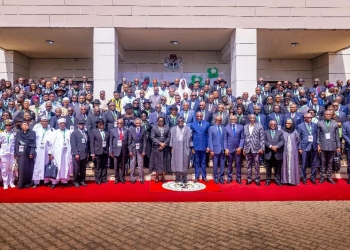The Court of Appeal has granted a landmark appeal in the claim of two Nigerian communities whose environment has been devastated by oil pollution, allegedly caused by Shell plc’s Nigerian subsidiary SPDC.
Posted on 11 October 2024
The appeal, which was granted on Friday 11 October 2024, overturns a High Court ruling in March 2024, which would have made it practically impossible for people to bring environmental claims involving multiple incidents of pollution. The claims, where were started nearly 10 years ago, should now finally move forward to a full trial with disclosure of important Shell documents.
More than 13,000 members of the Bille and Ogale communities say each community has been subject to around a hundred oil spills from Shell Nigeria’s infrastructure which have devastated their land, waterways and drinking water, leaving them unable to farm and fish.
The Court of Appeal dismissed the previous ruling that found that, because the claimants have been unable to link particular areas of damage to individual oil spills, the claims should be treated as a “Global Claim” – a type of legal action only ever used in contractual disputes in the construction industry.
Under a Global Claim, the Bille and Ogale communities would have had to prove that Shell was responsible for 100% of the pollution that has impacted their environment. If there were any other sources of pollution for which Shell was not responsible, each individual’s claim would fail. Lawyers at Leigh Day, who represent the two communities, feared this would have made it practically impossible for people to bring environmental claims following repeated incidents of pollution in future, unless they could prove the same polluter was responsible for all the pollution that has impacted them.
The March 2024 High Court ruling responsible for all the pollution that has impacted them.
The March 2024 High Court ruling required each of the 13,000 claimants to prove which specific oil spill or leak caused precisely what environmental damage at the start of the case, before any expert evidence or disclosure had been ordered. The communities’ lawyers successfully argued that this imposed an impossibly high burden on claimants at the start of proceedings, when they had not yet had access to important Shell documents. All the claimants know is that their waterways and drinking water became polluted over time, they cannot identify precisely which spill caused precisely what damage at such an early stage in the claim.
Leigh Day international department partner Dan Leader said:
“It has been ten years since these two Nigerian communities first brought their claims in the UK courts and many of our client
“Our clients have already had to fight all the way to the Supreme Court to get a ruling that the UK Parent company, Shell plc is potentially liable for the environmental devastation they have suffered. Shell has now tied the case up in knots all over again and it has barely moved forward since the communities’ Supreme Court victory in 2021. We are delighted that the Court of Appeal has now cut through the issues to allow the claims to finally proceed to trial.
“Our clients were being asked to pinpoint exactly which oil spill or leak caused which incident of pollution on their land at the very outset of their claims. Yet, the sheer scale of the pollution allegedly caused by Shell’s subsidiary over many years makes this an impossible task.
“This is a landmark judgment for environmental claims going forward. Now the “Global Claims” test has been dismissed, claimants will be able to bring complex environmental claims arising from multiple and repeated polluting events without being asked to prove the impossible.”
(@ https://www.leighday.co.uk/)











